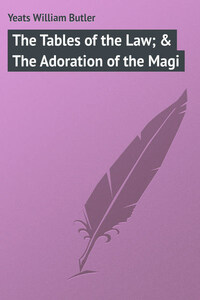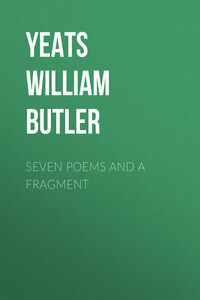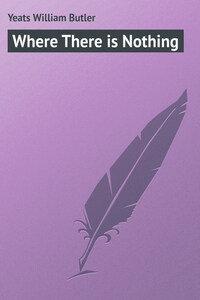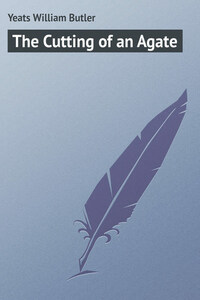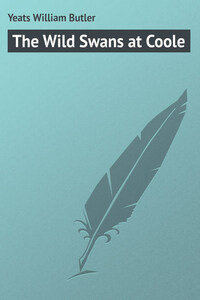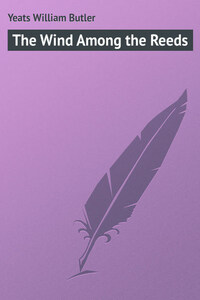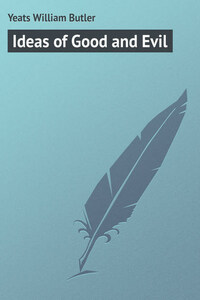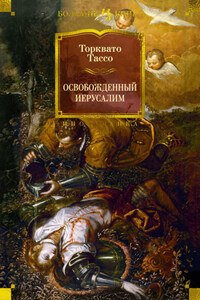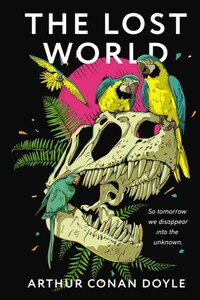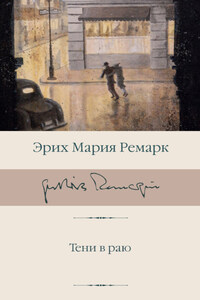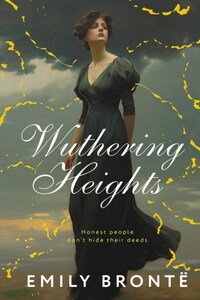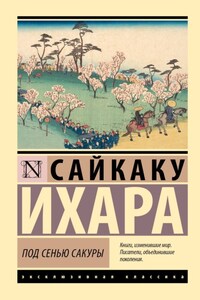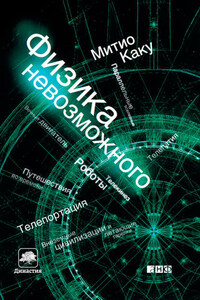'Will you permit me, Aherne,' I said, 'to ask you a question, which I have wanted to ask you for years, and have not asked because we have grown nearly strangers? Why did you refuse the berretta, and almost at the last moment? When you and I lived together, you cared neither for wine, women, nor money, and had thoughts for nothing but theology and mysticism.' I had watched through dinner for a moment to put my question, and ventured now, because he had thrown off a little of the reserve and indifference which, ever since his last return from Italy, had taken the place of our once close friendship. He had just questioned me, too, about certain private and almost sacred things, and my frankness had earned, I thought, a like frankness from him.
When I began to speak he was lifting to his lips a glass of that old wine which he could choose so well and valued so little; and while I spoke, he set it slowly and meditatively upon the table and held it there, its deep red light dyeing his long delicate fingers. The impression of his face and form, as they were then, is still vivid with me, and is inseparable from another and fanciful impression: the impression of a man holding a flame in his naked hand. He was to me, at that moment, the supreme type of our race, which, when it has risen above, or is sunken below, the formalisms of half-education and the rationalisms of conventional affirmation and denial, turns away, unless my hopes for the world and for the Church have made me blind, from practicable desires and intuitions towards desires so unbounded that no human vessel can contain them, intuitions so immaterial that their sudden and far-off fire leaves heavy darkness about hand and foot. He had the nature, which is half monk, half soldier of fortune, and must needs turn action into dreaming, and dreaming into action; and for such there is no order, no finality, no contentment in this world. When he and I had been students in Paris, we had belonged to a little group which devoted itself to speculations about alchemy and mysticism. More orthodox in most of his beliefs than Michael Robartes, he had surpassed him in a fanciful hatred of all life, and this hatred had found expression in the curious paradox – half borrowed from some fanatical monk, half invented by himself – that the beautiful arts were sent into the world to overthrow nations, and finally life herself, by sowing everywhere unlimited desires, like torches thrown into a burning city. This idea was not at the time, I believe, more than a paradox, a plume of the pride of youth; and it was only after his return to Ireland that he endured the fermentation of belief which is coming upon our people with the reawakening of their imaginative life.
Presently he stood up, saying: 'Come, and I will show you, for you at any rate will understand,' and taking candles from the table, he lit the way into the long paved passage that led to his private chapel. We passed between the portraits of the Jesuits and priests – some of no little fame – his family had given to the Church; and engravings and photographs of pictures that had especially moved him; and the few paintings his small fortune, eked out by an almost penurious abstinence from the things most men desire, had enabled him to buy in his travels. The pictures that I knew best, for they had hung there longest, whether reproductions or originals, were of the Sienese School, which he had studied for a long time, claiming that it alone of the schools of the world pictured not the world but what is revealed to saints in their dreams and visions. The Sienese alone among Italians, he would say, could not or would not represent the pride of life, the pleasure in swift movement or sustaining strength, or voluptuous flesh. They were so little interested in these things that there often seemed to be no human body at all under the robe of the saint, but they could represent by a bowed head, or uplifted face, man's reverence before Eternity as no others could, and they were at their happiest when mankind had dwindled to a little group silhouetted upon a golden abyss, as if they saw the world habitually from far off. When I had praised some school that had dipped deeper into life, he would profess to discover a more intense emotion than life knew in those dark outlines. 'Put even Francesca, who felt the supernatural as deeply,' he would say, 'beside the work of Siena, and one finds a faint impurity in his awe, a touch of ghostly terror, where love and humbleness had best been all.' He had often told me of his hope that by filling his mind with those holy pictures he would help himself to attain at last to vision and ecstasy, and of his disappointment at never getting more than dreams of a curious and broken beauty. But of late he had added pictures of a different kind, French symbolistic pictures which he had bought for a few pounds from little-known painters, English and French pictures of the School of the English Pre-Raphaelites; and now he stood for a moment and said, 'I have changed my taste. I am fascinated a little against my will by these faces, where I find the pallor of souls trembling between the excitement of the flesh and the excitement of the spirit, and by landscapes that are created by heightening the obscurity and disorder of nature. These landscapes do not stir the imagination to the energies of sanctity but as to orgiac dancing and prophetic frenzy.' I saw with some resentment new images where the old ones had often made that long gray, dim, empty, echoing passage become to my eyes a vestibule of Eternity.
